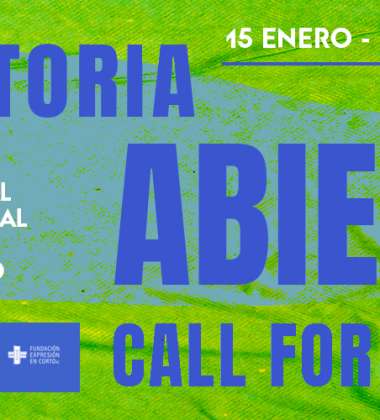[vc_row][vc_column][vc_gallery type=»image_grid» images=»20010,20011,20012″][vc_empty_space][vc_column_text]Yesterday the Master Class by Silver Cross-honored Lebanese director Ghassán Salhab, took place. He was honored for his contributions to cinema as part of the Spotlight Country’s international delegation.
In a conference moderated filmmaker and Lebanese cinema specialist Laila Hotait, Ghassan Salhab told us about his career, such as his experiences with migration that led him to express the importance that his different identities (as an African, an Arab, even a European) have in his work. In this respect he mentioned that identity is what you become and not what you are supposed to be.
He also shares a few experiences that marked him as a film enthusiast and how the freedom that movie theaters offered in the early 1970’s made the difference between genre films and art cinema irrelevant. Jean-Luc Godard, Michelangelo Antonioni, Carl T. Dryer, Buster Keaton and André Bressón were part of his romance with the screen that began after his arrival in Beirut during his adolescence due to how peculiar their films were.
Moderator Laila Hotait made note of the fact that in his films there always seems to be a supernatural threatening element in the atmosphere. The filmmaker mentioned that this may be due to living in a part of the world where peace is fragile and there’s always a threat of the next war or catastrophe.
He also shared a few glimpses of his creative process. He told us how , when directing actors, he’s always looking for performances that go beyond the limits of the situation as indicated by the screenplay. He said he seeks to capture the moment where the conscience of acting is no longer there. “My objective is to be here, be in the moment, live the present intensely and not get ahead of the facts”. On the importance of backgrounds in his films, which often become one more character, Ghassan Salhab mentioned that sets and locations are not only places for him, but spaces with a peculiar vibe that necessarily influences the topics we choose and the ways we express ourselves.
He believes that the greatest danger for filmmakers is to take things for granted and he insisted that the necessity for feeling things and images deeply so they have some value. “The only advice I can give to young people who want to be filmmakers is this: think about making your movie, not shooting your movie.” He believes cinema is a medium that depends on your capacity to feel the moment and the best thing about art is the exchange of likenesses and the contributions of subjectivities.
At the end there was a Q&A session in which the filmmaker responded to questions from the audience who thanked him profoundly for his words and for his disposition to make a part of himself and his work accessible. Salhab answered in perfect Spanish: “¡Muchas gracias!”[/vc_column_text][/vc_column][/vc_row]






